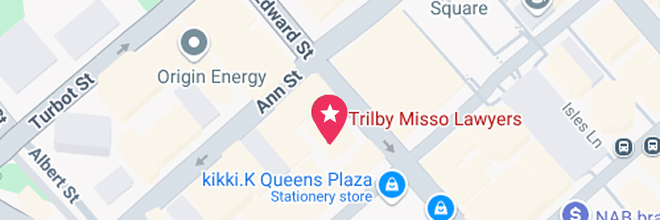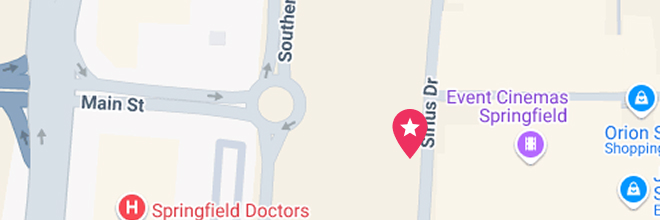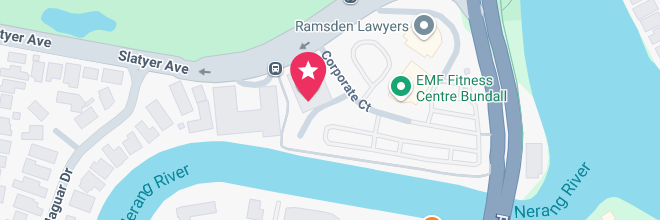Our Brisbane CBD Office
- Suite 400, Level 4/288 Edward St, Brisbane City QLD 4000
- (07) 3910 5470




In personal injury cases, legal jargon can be overwhelming for clients, especially those who may be encountering the legal system for the first time. Understanding key legal terms can make a significant difference in navigating the claims process. Knowing what certain terms mean—such as “liability,” “negligence,” and “damages”—can help people grasp the basics of their case and feel more in control as they go through each stage of their claim.
This knowledge empowers clients to make informed decisions and ask relevant questions, ensuring they feel actively involved rather than left in the dark. When clients understand the language used in personal injury law, it removes a lot of the mystery and confusion that can sometimes feel intimidating. They are better equipped to work with their lawyer and make choices that align with their best interests.
In this post, we’ll be clarifying some of the most common legal terms encountered in personal injury law, breaking them down in simple terms. Whether you’re dealing with a workplace incident, a motor vehicle accident, or a public liability claim, understanding these terms can provide peace of mind and confidence throughout the claims process. Our goal is to demystify these terms, helping you feel assured that your rights and options are clear, and allowing you to navigate the legal system with greater ease.
In personal injury law, “liability” refers to the legal responsibility for an incident or accident. It determines who is at fault, or who was negligent, and, therefore, who is responsible for compensating the injured party. Liability is central to any personal injury claim because it directly impacts whether or not compensation is awarded and who will pay for it. Understanding liability is essential when making a claim, as it helps identify the person or entity that should bear the financial burden of the injury.
Contributory negligence refers to situations where the injured party is found to have contributed to the accident in some way. For instance, if a pedestrian is hit by a car but was crossing the road without paying attention, their compensation may be reduced because they are partly to blame for the incident.
In the context of personal injury law, damages refer to the financial compensation awarded to an individual who has suffered harm due to someone else’s negligence or wrongdoing. Damages are meant to make the injured party “whole” again by compensating for their losses, whether physical, emotional, or financial. The compensation sum paid is to attempt to put the injured person back in the position they would have been in, had the accident not happened. The amount of damages awarded can vary significantly depending on the severity of the injury and the specific circumstances of the case.
In personal injury law, your lawyer will gather evidence to support your claim for compensation, how that sum is calculated will be by reference to the following heads of damage:
Each of these categories of damages contributes to the overall compensation amount in a personal injury claim. The more severe and permanent the injury is and the greater the financial and emotional impact, the higher the potential damages awarded.
The statute of limitations refers to the legal timeframe within which a person must file a claim in the Courts. In personal injury cases, this period is crucial because it sets a strict deadline for taking legal action. If a claim is not filed within the specified time, the injured party may lose the right to seek compensation altogether, no matter how valid the case is.
In Queensland, the statute of limitations for personal injury claims is three years from the date of the incident or from the time the injury is discovered. For example, if someone is injured in a car accident, they have three years from the date of the accident to make a claim. If the injury develops symptoms over time, such as with a work-related illness, the clock starts ticking from the date the injury is diagnosed.
Failing to act within this timeframe can have severe consequences. If you miss the deadline, the defendant may argue that your claim is “out of time,” and the court is likely to dismiss the case. This means that even if you have a strong case, you won’t be able to seek compensation, leaving you with no financial recourse for medical expenses, lost wages, or pain and suffering.
Given the importance of timing, it’s essential to consult with a compensation lawyer as soon as possible after an incident. Early legal advice can ensure your claim is lodged within the required timeframe, protecting your right to compensation.
A work injury claim is a legal process where an employee seeks compensation after suffering an injury or illness that occurs while at work. These claims are vital for workers who are injured in the course of their duties, whether through accidents, repetitive strain, or exposure to hazardous conditions. In Queensland, WorkCover is the main provider of support for injured workers, offering a range of benefits to assist with recovery and financial support.
To file a work injury claim, the injured worker must first notify their employer about the incident as soon as possible. This helps ensure that the employer can report the injury to WorkCover, which is the insurer that manages workers’ compensation claims. After reporting the incident, the injured worker should seek medical treatment.
Once the medical reports and injury details are submitted, the claim is assessed by WorkCover. The injured worker may be entitled to compensation for a variety of expenses, including medical treatment, hospital bills, and rehabilitation costs. Additionally, compensation can cover lost wages if the worker is unable to return to their job immediately or needs time off for recovery.
In cases where the injury leads to long-term disability or permanent impairment, workers may also be eligible for a lump sum payout. WorkCover in Queensland offers a comprehensive support system for workers, ensuring they receive the necessary care and financial assistance during their recovery. It’s important for workers to seek legal advice to navigate the claims process and secure the compensation they are entitled to.
Where a worker can establish that the employer was negligent, they may choose to lodge a common law claim for damages. This is where the worker seeks compensation beyond their medical expenses and lost wages, this is where they seek compensation for pain and suffering and the income they will likely lose in the future.
No Win, No Fee: What It Means for Your Case
The “no win, no fee“ arrangement is a key feature in personal injury law that allows clients to pursue legal claims without the burden of upfront costs. Simply put, it means that if your case is unsuccessful, you don’t pay any legal fees. This system ensures that those who may not have the financial means to afford legal representation can still access justice and seek the compensation they deserve for their injuries.
This arrangement is particularly valuable for individuals dealing with the financial strain caused by medical expenses, lost wages, and other injury-related costs. For instance, if you’re injured in a motor vehicle accident and unable to work, the “no win, no fee” model means you can pursue your claim without the added stress of paying lawyer fees if you don’t win.
The purpose of “no win, no fee” is to allow injured parties to focus on their recovery rather than worry about paying for legal services. It reduces the financial risk involved in taking legal action, ensuring that only successful cases will result in a fee. If your claim doesn’t succeed, you won’t be left with significant legal bills.
This arrangement also ensures that law firms are motivated to work hard for the best possible outcome, as their fees are directly tied to the success of the case. It provides injured individuals with the confidence to seek legal support, knowing that they will only be required to pay if they receive compensation.
Settlement: Resolving a Case Outside the Courtroom
A settlement is an agreement between the parties involved in a personal injury case to resolve the dispute without going to trial. Instead of presenting the case in front of a judge, the injured party and the defendant agree on a compensation amount, often with the help of their legal teams. This alternative approach can save both time and money, making it an attractive option for many people seeking compensation.
In many personal injury claims, a fair settlement can provide an effective resolution, offering both parties a chance to move forward without the uncertainty of trial.
TPD Claims: Total and Permanent Disability Explained
A TPD claim, or Total and Permanent Disability claim, is a type of insurance claim that individuals can make if they are unable to work due to a serious injury or illness. This type of claim is relevant for those whose disability or condition is deemed permanent, meaning they cannot return to their previous employment or engage in other suitable work. For example, if someone suffers a severe spinal injury that prevents them from returning to any form of employment, they may be eligible to lodge a TPD claim.
For those unable to return to work due to a total and permanent disability, lodging a TPD claim can offer crucial financial relief, allowing them to manage their day-to-day expenses and focus on their well-being.
Public Liability: Incidents in Public Spaces
Public liability refers to a legal responsibility that owners or operators of public spaces hold to ensure safety for visitors. If someone is injured in a public or shared space due to hazardous conditions, public liability law allows them to seek compensation for their injuries. This type of claim is significant because it holds property owners or occupiers accountable, encouraging them to maintain safe environments for everyone. For example, if a supermarket fails to clean up a spill promptly and a customer slips, the supermarket may be liable for any injuries that result if they can’t establish they have an adequate cleaning system.
For a successful personal injury claim, it’s essential to prove negligence. This means showing that the responsible party failed to take reasonable steps to prevent the accident. Evidence like photos, incident reports, and witness statements can be crucial in establishing this. Without proof of negligence, a claim may not be successful, as liability is typically only assigned when the owner’s or occupier’s actions (or inaction) directly caused the incident.
Frequently Asked Questions (FAQs) About Common Legal Terms in Personal Injury Claims
Understanding key legal terms is essential when navigating a personal injury claim, as it empowers you to make informed decisions and feel more confident in the process. Concepts like liability, negligence, damages, and specific terms like TPD claims or “no win, no fee” arrangements all play crucial roles in determining the course and outcome of a case. By grasping these terms, you can better understand what’s required to build a strong claim and the types of compensation you may be eligible to receive. Remember, each personal injury case is unique, and knowing the basics provides a solid foundation. If you have further questions or require guidance, consulting a legal professional can provide clarity specific to your situation. Equipped with this knowledge, you’re in a stronger position to approach your case confidently and advocate for your rights.
Further Reading: Legal Dictionary – Australian Institute of Criminology
This resource offers definitions and explanations of common legal terms used within the Australian criminal justice system.
https://www.aic.gov.au/publications/other/legal-dictionary
Kathryn is Trilby Misso’s Chief Executive Officer.
Meet KathrynUse this simple online tool and find out if you have a claim in less than thirty seconds. You can choose to remain anonymous.
Your next step is a small one. All you need to do is give us a call on 07 3910 5470 or complete this form here to arrange a quick chat.
During this initial conversation, we will:

We understand that taking legal action can be stressful, and we’ll do all we can to ease your concerns.
The chat can take place at our place, your place, or by phone. There is no cost, no pressure, and no obligation.
Call 07 3910 5470 or fill out this form, and we’ll get back to you within 2 hours (during business hours). We look forward to meeting you.
enquire now